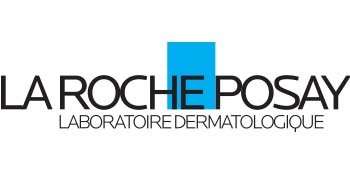$61.18
| /
From the manufacturer



About La Roche-Posay
Recommended by 90,000 dermatologists worldwide*, La Roche-Posay offers unique daily skincare developed using a strict formulation charter and stringent clinical testing for efficacy and safety, even on sensitive skin.
*Survey on the dermocosmetic market carried out by IQVIA and other partners between November 2018 and July 2019 among dermatologists in 46 countries representing more than 80% of the worldwide GDP.
Effaclar Mat Oil-Free Mattifying Moisturizer
Product Technology
Effaclar Mat is a mattifying face moisturizer for oily skin that targets excess oil. This daily moisturizer with Sebulyse technology provides dual action targeting by reducing shine and large pores, while hydrating and leaving skin looking and feeling matte. This moisturizer with a light matte is an excellent base for makeup.
Recommended for: Oily/shiny skin, enlarged pores
Key Ingredients: Sebulyse Technology, Lipo-Hydroxy Acid, Perlite, Silica
● Dermatologist Tested for Safety
● Allergy Tested
● Oil-Free/Non-Comedogenic
● Suitable for Sensitive Skin
● Paraben Free
● 2020 Prevention Healthy Skincare Awards for Best Mattifying Moisturizer for Oily Skin


Moisturizer for Oily Skin
A common misconception is that oily skin does not need to moisturize. Skipping this step can actually cause excess oil production to compensate. Choose a non-comedogenic moisturizer that also has mattifying and pore refining benefits. This will help address shine and large pores.

How to Use
Recommended for use as a daily, oil-free mattifying moisturizer for oily skin. After thoroughly cleansing skin, apply morning and / or evening. Avoid contact with eyes.

Effective and Safe Solutions
Effaclar offers breakthrough solutions for acne and oily skin developed with dermatologists for fast visible results. Effaclar formulas are dermatologist tested to be suitable on sensitive skin. This is a critical part of the La Roche-Posay mission to improve quality of life through skin.

New discoveries in acne formation
Despite a wealth of scientific information about acne, little is known about its causes. Researchers recently discovered that rather than being a consequence that inflammation could actually be a cause - confirming the importance of treating the whole face.

